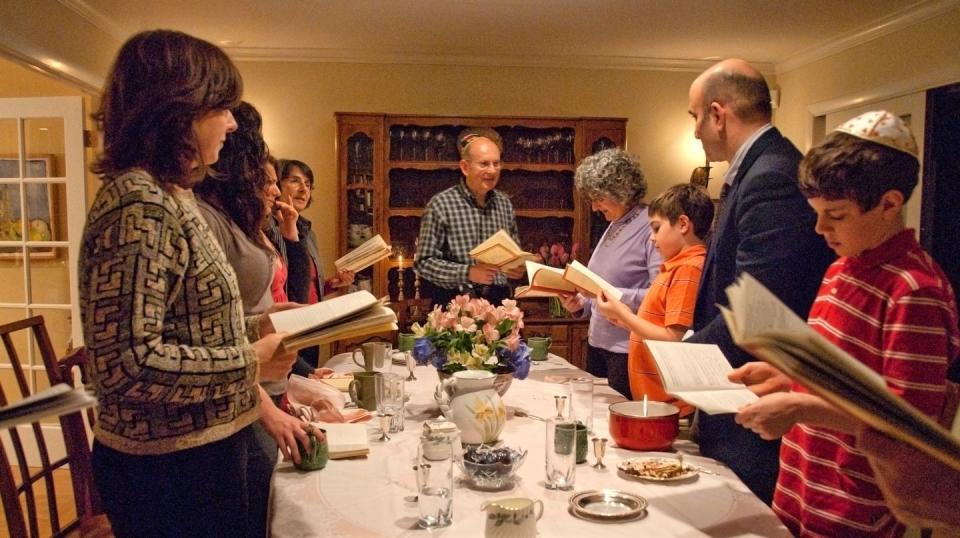Why Passover's Date Changes Every Year
Spring is officially here, and with its arrival comes Passover. For those of you who don't know, the Jewish holiday centers around the Book of Exodus, commemorating when God freed the Israelites from enslavement in Egypt under Pharaoh.
It's a time when families and friends comes together to adhere to strict traditions and reflect on what their ancestors have gone through, and what their community faces today. The main event of the holiday, the seder, occurs during the first two nights. The dinner includes religious rituals of reading, drinking wine, singing, and eating delicious foods — all of which must be done and consumed in a certain order (seder means "order" in Hebrew).
Keep reading to learn more about the beautiful holiday and its traditions below.

When is Passover in 2023?
The date of Passover changes every year since Jewish holidays rely on a lunar calendar, not the Gregorian calendar. While the date changes each year, Passover always falls on a full moon in the spring. This year, Passover begins at sundown on April 5, and ends at sundown on April 13. Many people have Passover seders on the first and/or second nights of Passover, so seders will occur on April 5 and 6.
When does Passover start?
Passover starts on April 5, 2023.
When does Passover end?
Passover ends on April 13, 2023.
How many days is Passover?
For Jews living outside of Israel, Passover lasts for eight days, while Jews living in Israel observe the holiday for seven. The Torah, which contains the first five books of the Hebrew Bible (including the Book of Exodus), says Passover lasts for seven days. But since the Jewish calendar follows the lunar cycle, in ancient times Jews relied on the direct observance of the moon and added an extra day to the holiday just in case.
During this time, most Jews follow strict dietary rules including not eating leavened foods such as bread (called chametz), which is meant to symbolize how the Israelites did not have time for their bread to rise when they were fleeing from Egypt. Traditional Passover dishes include beef brisket and gefilte fish, as well as matzah or matzo, an unleavened flatbread that's specially made for Passover. Matzo meal can also be used to make a variety of unleavened delights such as matzah ball soup, a tasty chicken (or vegetable) broth soup that features fluffy balls made of matzah.

Celebrations
Passover celebrations include attending religious services and gathering with friends and family for a seder, the traditional Passover meal during which the story of Exodus is recounted. Seder translates to "order" in Hebrew, because there is a ritual order that is followed in every respect, including the sequence of prayers, songs and how food is eaten.
What to say to someone during Passover
"Happy Passover" is a totally acceptable way to recognize friends and family who are celebrating the holiday. In Hebrew, you would say, "Happy Pesach," (this is pronounced PEH-sach, emphasis on the "ch" like in the name Bach). "Chag sameach," which means happy holidays, is also fine, but not Passover-specific.
You Might Also Like


